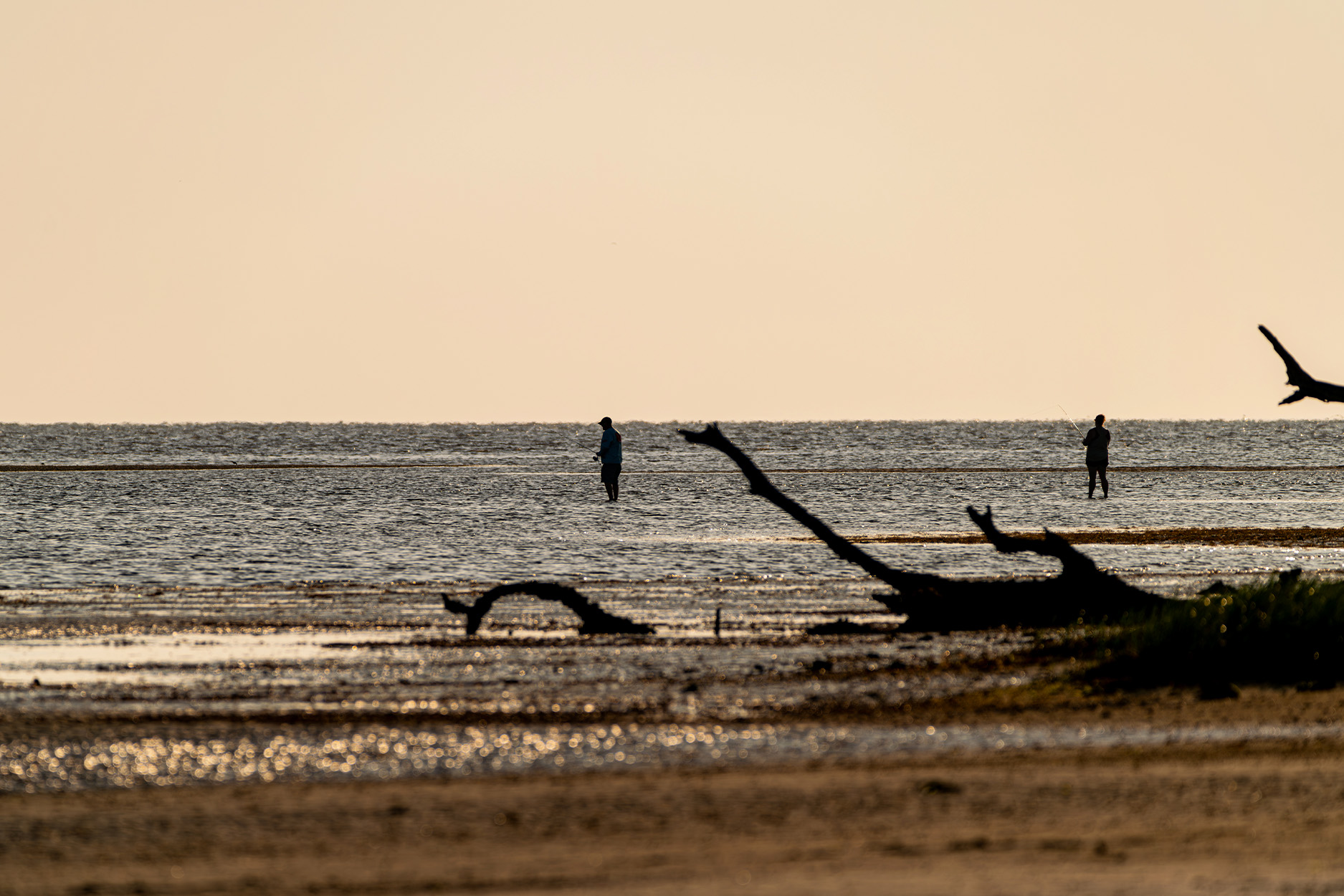A fisherman on the Texas Coast died unexpectedly in June from a flesh-eating bacteria he contracted while wading in the Gulf. The man’s tragic death could have been avoided, according to his daughter, who now joins state health officials in warning the public about the bacteria and how to avoid infection.
“It’s real,” Brandy Pendergraft told KHOU-11, referring to the flesh-eating bacteria known as Vibrio. “It will get you. It will get anybody.”
Pendergraft said her father, 66-year-old Randy Bunch, had gone out crabbing and fishing in Freeport in early June. Just like he’d done so many times before, the local fisherman waded out to check one of his crab traps that evening. Only this time, Bunch wore flip flops instead of the regular wading boots he typically used. Pendergraft said he also had a small scrape on his foot that he’d forgotten about.
“It was little, tiny nick on the top of his foot,” Pendergraft told the news outlet. “I mean not even an inch, it was tiny.”
Read Next: The Best Fishing Boots of 2024
She said she got a call later that evening from Bunch, who complained about a severe pain along the right side of his body. The two went to the emergency room, where doctors were unable to diagnose Bunch and sent him back home. By the next morning, however, Bunch had a 104-degree fever, and he was lethargic and disoriented, Pendergraft explained.
Roughly 12 hours later, Bunch was hooked up to a ventilator at the Texas Medical Center when Pendergaft pointed out the scrape on his foot. Doctors then confirmed that he’d contracted vibriosis, but Pendergraft said it was too late to stop the infection by that point.
“The blisters were taking over his whole body,” she explained. “It was spreading. Just like a fire.”
Bunch died less than a week after he waded out in the Gulf, according to KHOU-11. His tragic story has since resurfaced, however, due to a larger vibriosis outbreak that Texas health officials are calling attention to. In early August, the Galveston County Health District issued a public health alert about the disease.
“Recent surveillance has identified an increase in Vibrio-related cases from Galveston Beach,” the GCHD warned in a press release. “Recent reports of Vibrio infections have raised concerns about the potential health risks associated with exposure to these bacteria, especially during the summer when water activities peak.”
Vibrio infections in humans are caused by a few types of naturally occurring bacteria that are present year-round in the Gulf of Mexico but are more prevalent during the summer as the water warms, according to GCHD. One form of the bacteria can be found in raw or undercooked shellfish, and many vibriosis cases involve people who’ve gotten sick after eating raw oysters.
Another form of Vibrio bacteria can cause wound infections. And although GCHD says “it’s rare for a person to develop a severe infection from Vibrio bacteria,” the chances of such an infection increase if that person has “a preexisting immune-suppressing health condition and open sores or wounds.” Bunch reportedly had a blood disorder, according to KHOU-11.
GHCD also informed the local news outlet that it has confirmed 11 cases of vibriosis in Galveston County so far this summer. This figure does not include Bunch’s fatal case, as Freeport lies in neighboring Brazoria County. It’s a notable increase from last year; the Chron reports that GHCD had only confirmed two vibriosis cases by early August 2023.
To minimize the risk of infection, the local health district recommends avoiding raw seafood, practicing good hygiene, and staying informed about the prevalence of Vibrio in certain coastal areas. People with open wounds should also avoid seawater or at the very least keep their wounds covered, says GHCD, which adds that “early diagnosis and treatment are crucial to managing symptoms and preventing complications.”

